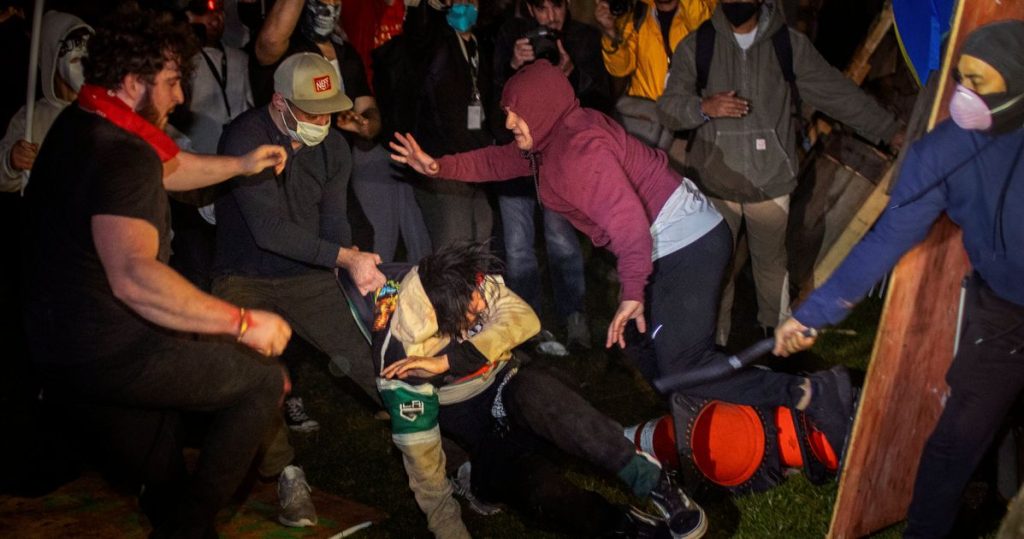Dueling groups of protesters clashed at the University of California, Los Angeles, in a violent confrontation that resulted in fistfights, shoving, and beatings. This incident is part of a larger student movement across the country calling on universities to stop doing business with Israel or companies that support the war in Gaza. Similar protests have taken place at various other universities, with some resulting in physical altercations and over 1,000 arrests. The crackdown by law enforcement has stirred memories of student protests during the Vietnam War era.
In response to the escalating tensions, police intervened to separate pro-Palestinian and pro-Israeli demonstrators at UCLA, eventually quelling the violence. The clashes occurred around a tent encampment built by pro-Palestinian protesters, which was met with resistance by counter-protesters. The situation escalated as individuals threw objects and resorted to physical violence, leading to injuries though the exact number is unknown. Los Angeles Mayor Karen Bass condemned the violence as “absolutely abhorrent and inexcusable,” with law enforcement presence from the Los Angeles Police Department and California Highway Patrol.
On the same day, police were called to Columbia University in New York City, where pro-Palestinian protesters had taken over a building and disrupted the campus. The university made the decision to clear the encampment and the building, leading to dozens of arrests. University officials cited the need to maintain campus life without disruption as the reason for requesting police intervention. This crackdown sparked opposition from various students who believed it escalated the situation rather than de-escalating it.
The protests have spread to numerous universities and have resulted in confrontations with law enforcement and campus officials. Brown University reached a compromise with protesters to consider divesting from Israel in exchange for closing the encampment. Similar situations unfolded at other universities like Northern Arizona University and Tulane University, where police intervened to disperse protesters and make arrests. As the situation continues to evolve, the effects of these protests on national policy and discourse remain unclear.
Critics of the university protests have labeled them as antisemitic, while supporters argue they are a peaceful movement aimed at defending Palestinian rights. Organizers, including some who are Jewish, emphasize the peaceful nature of the protests and the goal of advocating for Palestinian rights. The escalation of tensions and the involvement of law enforcement at various universities have raised questions about the limits of free speech and peaceful assembly on college campuses. The protests have ignited debates about political ideologies, freedom of expression, and the Israeli-Palestinian conflict within educational institutions.
Despite different responses from universities to the protests, the underlying issues regarding Israel’s offensive in Gaza and the broader implications of the conflict remain central to the demonstrations. The involvement of law enforcement agencies in campus protests has also raised concerns about the handling of dissent and activism at higher education institutions. As negotiations and crackdowns continue, the impact of these protests on university policies, student activism, and public discourse will likely be closely monitored in the coming weeks.


